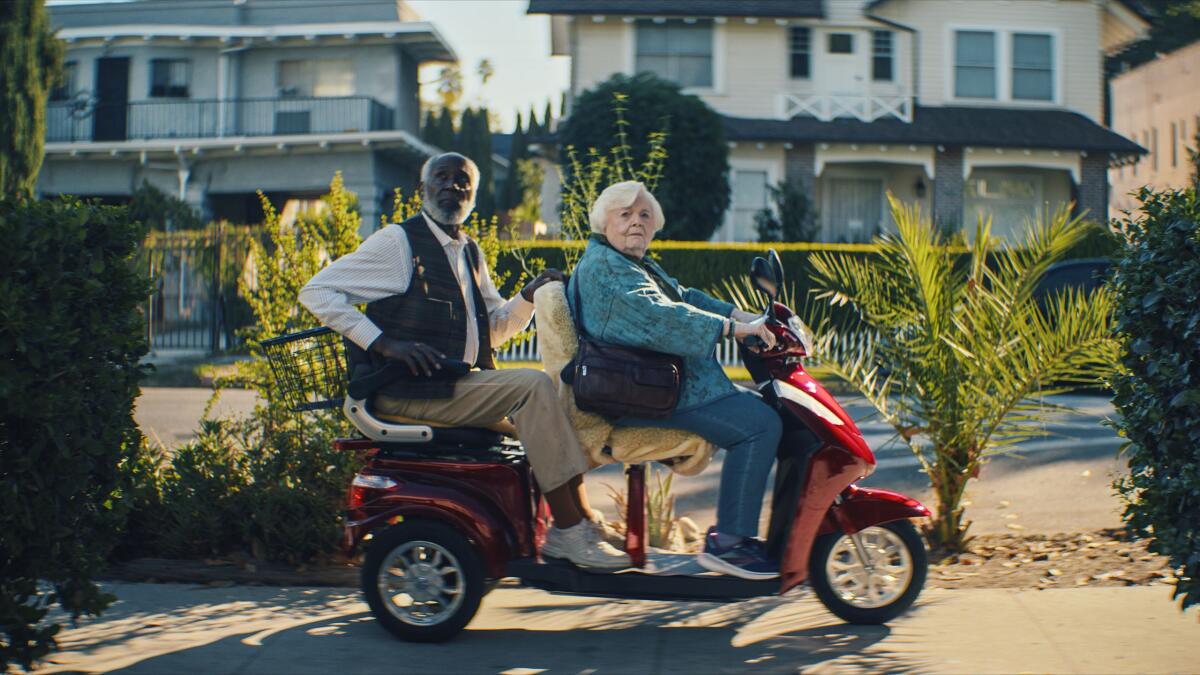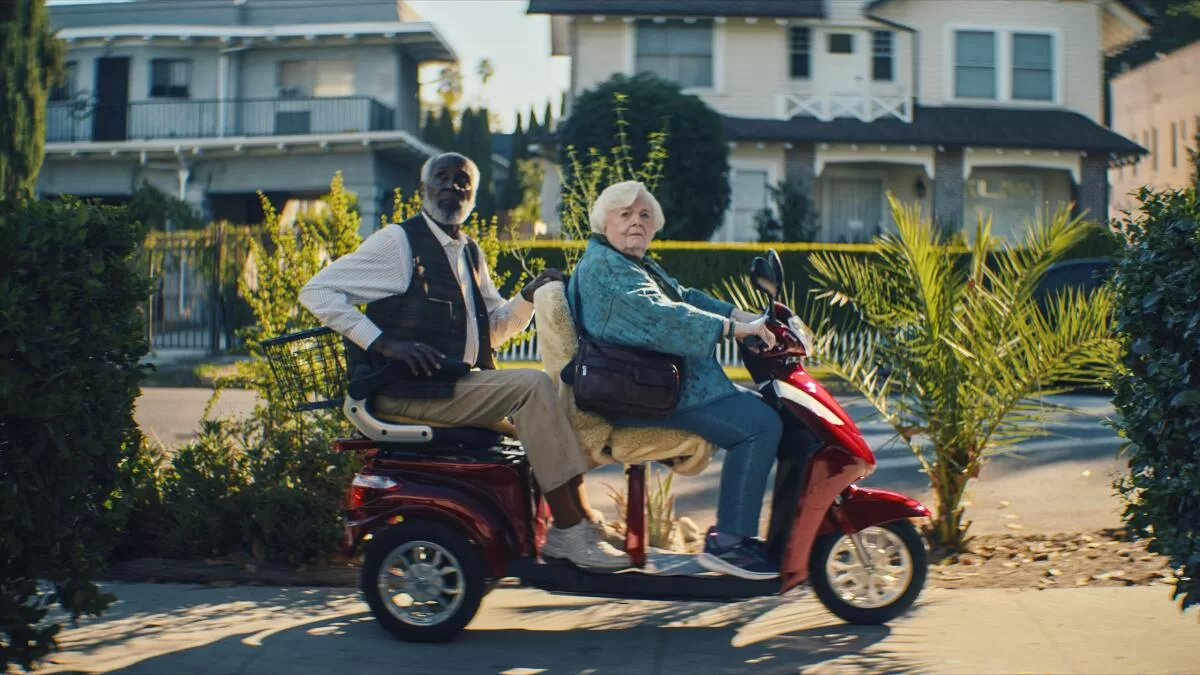Set over the course of one day, “Thelma” is a love letter to tough grandmas and Tom Cruise, and a celebration of California’s San Fernando Valley, from Encino to Van Nuys. And while “Thelma” is notable for being the very first lead film role for the now-94-year-old Squibb, who has been performing for more than six decades, the film is also a calling card for writer-director-editor Margolin, who demonstrates his skill with screen style and suspense in this high-stakes dramedy.
Margolin does a lot with a little in “Thelma,” which is inspired by his own relationship with his grandmother, also named Thelma. While the setting may be humble, Margolin captures the unlikely beauty of the Valley, and injects thrilling suspense into this yarn, one that transforms quotidian dramas — like making an unprotected left turn, or closing pop-up ads on a webpage — into nail-biting action sequences.
His surrogate in “Thelma” is Daniel (Fred Hechinger), a 24-year-old sensitive ne’er-do-well whose best friend is his grandmother Thelma. They spend time in her comfortable home, which is haunted by the absence of her recently deceased husband. Together, they watch “Mission: Impossible” movies, Daniel helping Thelma with her computer and fretting over her safety. When Thelma receives a frantic call with the news that Daniel’s been in an accident and she needs to send $10,000 in cash, she doesn’t hesitate to book over to the Encino post office to drop the money in the mailbox.
It’s when she finds out she’s been the victim of a scam that the plot kicks into gear. With Daniel safe and unharmed, the police aren’t much help, and her family (Parker Posey as her daughter, Clark Gregg as her son-in-law) throw up their hands in defeat. But Thelma isn’t about to take this lying down. She will, however, take it sitting down, behind the wheel of a two-seater scooter she “borrows” from an old friend, Ben (Richard Roundtree, in his final role), whom she visits at an assisted living home. The two set off on an odyssey to retrieve Thelma’s cash, while Thelma’s family worries about her whereabouts.
Their journey takes them to some unlikely places, specifically an antique lamp shop manned by a menacing Malcolm McDowell, as well as to some unexpected realizations, about accepting that it’s OK to ask for help, but that independence is a rare, complicated gift to those who are later in life. It’s refreshing to see a film where someone in their 90s is able to have new revelations and learning experiences, retaining the capacity to surprise themselves and others.

(David Bolen / Sundance Institute)
Squibb is a delightful presence, capably handling the humor and the heart of the story, and demonstrating true grit too, while the late, great Roundtree offers a warm, steadying presence. Posey and Gregg bring the comedic elements as the frazzled parents of Daniel, while Hechinger is charmingly stressed about losing his grandma and trying to figure out what he’s going to do with his life.
The cast is fantastic, but it’s the cinematic style that makes “Thelma” a proper big-screen movie experience. Nick Chuba’s percussive score brings a jazzy beat that’s “Ocean’s 11” by way of “Mission: Impossible,” and David Bolen’s cinematography is richly saturated with color and creative practical lighting. Margolin’s inspired direction elevates “Thelma,” imbuing each moment with a thoughtful eye toward craft.
“Elderly female action star” is a cute premise, but Margolin makes the most of it without infantilizing his heroine or otherwise resorting to lowest common denominator humor. Instead, he delivers a film that suggests there’s always an opportunity to experience something new in life, from the smallest observations to the most dramatic showdowns.
The most important lesson of all? Underestimate a determined older woman at your own risk.
Katie Walsh is a Tribune News Service film critic.
‘Thelma’
Rating: PG-13, for strong language
Running time: 1 hour, 37 minutes
Playing: In wide release Friday, June 21
